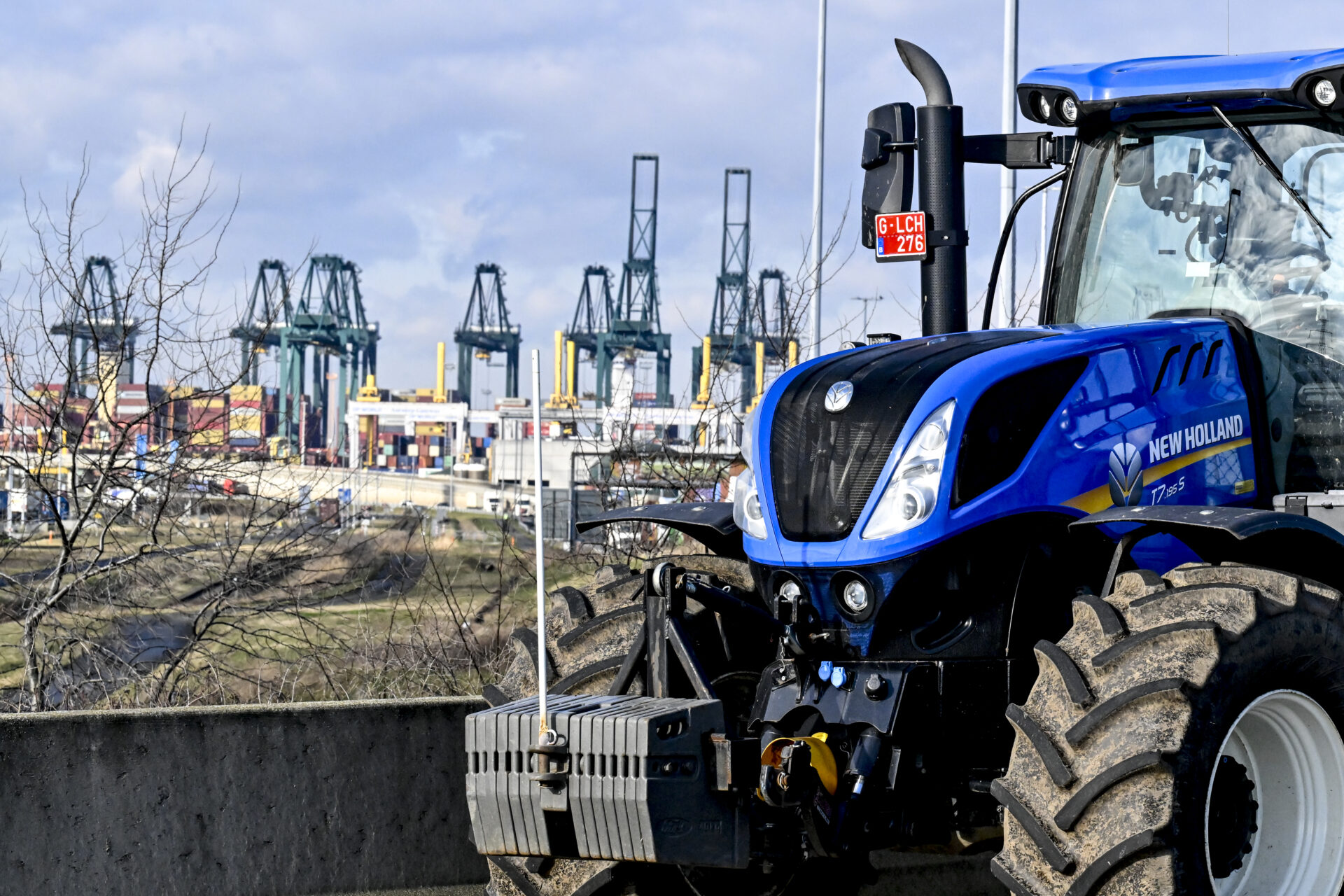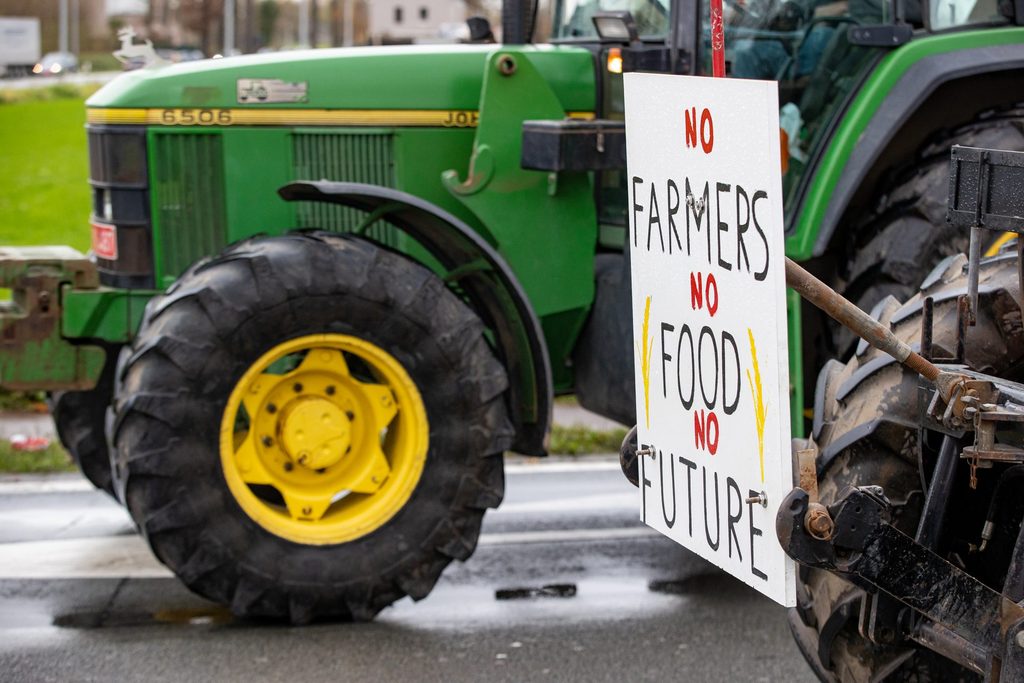Farmers are once again expected to take to the streets with their tractors on Thursday 14 March. For this action, they are setting their sights on the harbours of Antwerp, Zeebrugge and Ghent.
Farmers in Belgium and across Europe have been protesting for months, mainly to raise their concerns and anger about the excessively stringent European environmental regulations and falling incomes. Bart Dickens of the Farmers Defence Force confirmed that farmers are once again planning a major protest action next week.
He noted that farmers also plan to intensify their actions. Their strategy for this latest action involves implementing ‘filter blockades’ at Belgium's main ports in Antwerp, Zeebrugge and Ghent.
Last month, hundreds of tractors blocked access roads to the Antwerp port and the filter blockades – which still allow some vehicles, such as emergency services and transporters carrying toxic or perishable products to pass – caused problems on the roads in and around the port area.
Two weeks before, almost 2,000 trucks were stuck in the area in and around Zeebrugge for several days as farmers blocked access to the port. This led to trucks being parked in unsafe places, such as the motorway's breakdown lane.
'Radicals targeting ports'
By blocking the harbours, the farmers aim to highlight that it is primarily industrial activity that emits nitrogen, not agriculture. But the ports, especially the one in Antwerp, also serve as major economic and logistical hubs, making them a prime target for farmers' protests.
This also means authorities push back more strongly against actions here. Antwerp city councillor for the port Annick De Ridder (N-VA) already noted she is deeply concerned about the latest protest announcement. "We will not allow this to happen again," she stated. She noted that she understands the anxiety of farmers, but that they "should sit around the table and negotiate".

Protest action at the Kallo lock near the Port of Antwerp in January 2024. Credit: Belga/Dirk Waem
"That is what the majority of farmers did," she argued. "You don't 'just block' roads because you can with some tractors, the heart of our economy, with its 1,400 companies and 165,000 (direct and indirect) workers. Not again."
She added that the decision of "a group of radicals" to target the port again is especially unacceptable after the concluded agreement between the Flemish Government and farmers' organisations.
Crisis centre convened
The threat of legal action was also hinted at: "If necessary, we will resort to the courts and identify any violators [blocking roads and companies, impede the passage of goods and access to workers], and seek maximum compensation from anyone who obstructs our crucial infrastructure."
Flemish Minister of Agriculture Jo Brouns (N-VA) also said he understands that words must be followed by actions in light of the agreement concluded, but stressed on 'De Zevende Dag' on VRT 1 that farmers should be careful not to undermine the support base they have created with their actions. He added that he only supports the farmers' actions if they are done in a "correct and orderly way".
Home Affairs Minister Annelies Verlinden (CD&V) requested that the Crisis Centre convene a coordination meeting with the relevant services on Monday ahead of the farmers' protest.
The first purpose of that coordination meeting is to gather all the information that is circulating about the actions and to see what the seriousness and veracity of that information is. The services involved will also consider what approach is needed in the actions planned.

